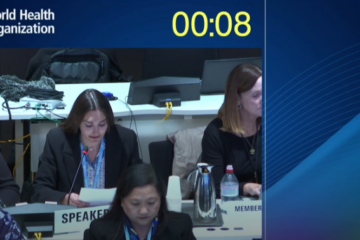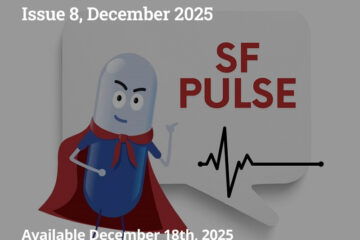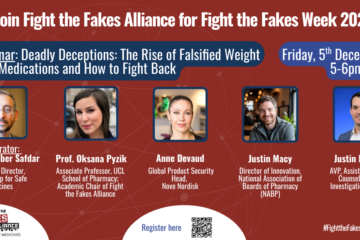This article was originally published in The American Journal of Nursing. To view the article, click here.
Fight the Fakes
Benton, David Chief Executive Officer; Williamson, Lindsey Communications Officer, International Council of Nurses
In February 2012, a cocktail of salt, starch, acetone, and a variety of other chemicals was delivered to 19 U.S. cancer clinics, instead of a vital chemotherapy medication they were expecting. Earlier this year, the Daily Mirror reported on black market abortion tablets that are being sold online to young teenage girls too scared to tell their parents they’re pregnant. The pills can kill if the wrong dose is taken.
Seven hundred thousand people a year are killed by fake (counterfeit or substandard) tuberculosis and malaria drugs alone, according to 2009 estimates from the International Policy Network. The Food and Drug Administration estimates that counterfeits make up more than 10% of the global medicines market and are present in both industrialized and developing countries. It’s estimated that as much as 25% of the medicines consumed in low-income countries are fake. And annual earnings from sales of fake medicines may exceed $32 billion globally, according to the World Health Organization.
Fake medicines put patients at risk for continued illness, disability, or even death. They can contain the wrong ingredients, the wrong dose, no active ingredient at all, or dangerous substances. In 2009, at least 84 children in Nigeria died after taking a syrup for teething pain that contained diethylene glycol, an industrial solvent and an ingredient in antifreeze and brake fluid. In 2011, nearly 3,000 Kenyans were affected by a fake batch of HIV antiretroviral medicine.
In order to shed light on this global threat to patient safety, the International Council of Nurses (ICN) has joined Fight the Fakes, an international campaign to combat counterfeit medicines. Fight the Fakes raises awareness of the dangers of fake medicine by giving a voice to those who’ve been personally affected and sharing the stories of those working to put a stop to this worldwide public health threat. The Fight the Fakes Web site (www.fightthefakes.org) serves organizations and individuals who are looking for resources, opportunities for action, or reports on what others are doing to fight fake medicines.
The ICN understands the trust that patients place in nurses. When patients are given a fake medicine, they can lose faith in health care professionals. The ICN believes that increasing awareness of the existence of fake medicines and the dangers they pose will help put pressure on governments and manufacturers and distributors of medicines to tackle this danger together at the global level.
The ICN began addressing the issue in 2005, with the release of a tool kit on counterfeit medicines (http://bit.ly/1oQqkLK). In 2011, with its partners at the World Health Professions Alliance (WHPA), the ICN launched a campaign designed to educate health professionals, patients, and public health advocates on fake medicines and increase their ability to detect, report, and prevent them.
Another tool kit, Be Aware, Take Action: Counterfeit Medical Products Kill, available on the WHPA Web site (www.whpa.org/pubs.htm), contains fact sheets; useful tools to help identify and report possible fake medicines, such as a checklist of medicines for waiting rooms and pharmacies; and patient education materials. —David Benton, chief executive officer, and Lindsey Williamson, communications officer, International Council of Nurses


